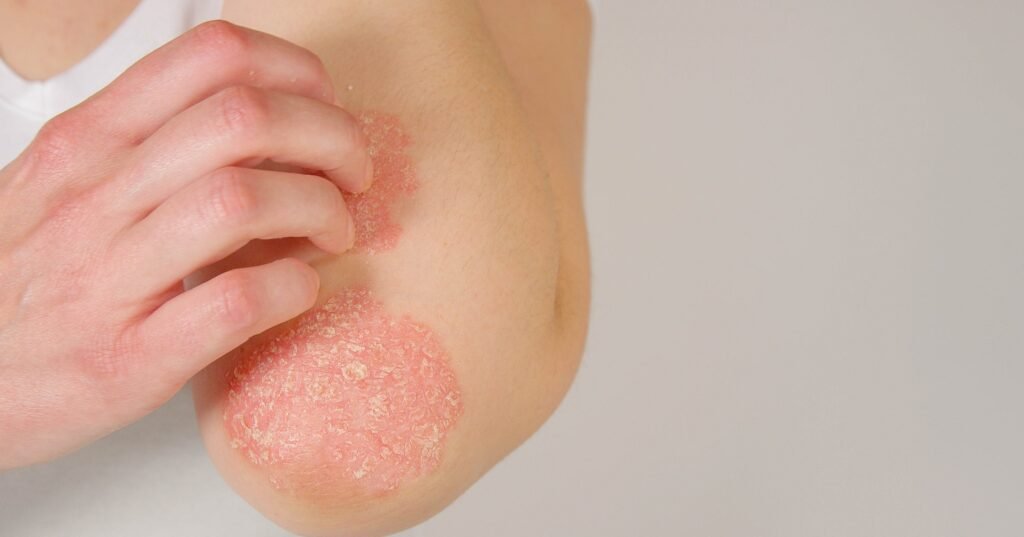Understanding Psoriasis: A Comprehensive Guide
Focus Keyword: Psoriasis Treatment
Psoriasis is a chronic inflammatory skin disorder affecting over seven million individuals in the United States alone, according to the American Academy of Dermatology. This condition can significantly impact both physical appearance and mental well-being, making awareness and understanding essential.
What Is Psoriasis?
Psoriasis is characterized by an overactive immune system leading to accelerated skin cell growth. As certified dermatologist Jodi LoGerfo explains, skin cells multiply up to ten times faster than normal, resulting in the buildup of patches known as plaques. These plaques can appear anywhere on the body, most commonly on:
- Elbows
- Knees
- Lower back
- Scalp
- Genitals
Types of Psoriasis Symptoms
Common symptoms include:
- Red, itchy patches: Typically well-defined and silvery, these plaques vary in color depending on skin tone.
- Moist, shiny skin: Often occurs in skin folds.
- Nail changes: Nails may become pitted or discolored.
- Burning or pain: Affected areas may be painful or uncomfortable.
"Psoriasis can impact a patient’s body image, leading to anxiety and depression," says Dr. LoGerfo.
Causes of Psoriasis
While the exact causes are not fully understood, psoriasis is recognized as an immune-mediated disease influenced by genetic and environmental factors:
- Genetic Factors: There is a strong hereditary link. If a family member has psoriasis, you may be more likely to develop it.
- Environmental Triggers: Certain triggers may lead to flare-ups, including:
- Stress
- Alcohol consumption
- Smoking
- Certain medications (like lithium)
"Psoriasis can be exacerbated by both known and unknown triggers," notes Dr. Jay Wofford.
Effective Psoriasis Treatments
Treatment Options Based on Severity
-
Mild Psoriasis:
- Topical Treatments: Creams or lotions such as corticosteroids and vitamin D analogs.
- Phototherapy: Using ultraviolet light to alleviate symptoms.
- Severe Psoriasis:
- Systemic Treatments: Medications taken orally or via injections to control the condition.
- Advanced Phototherapy: More extensive light treatments to target larger areas.
Home Remedies for Managing Symptoms
- Avoid Scratching: Picking at skin can trigger psoriasis flare-ups.
-
Diet Management: While food can’t cause psoriasis, some foods can worsen inflammation. Try to limit:
- Alcohol
- Dairy
- Processed sugars
Incorporating anti-inflammatory foods like fruits, vegetables, fatty fish, and whole grains can help.
- Stress Reduction Techniques: Managing stress is vital as it can exacerbate symptoms. Consider mindfulness exercises, meditation, or yoga to reduce stress levels.
Psoriasis and Mental Health
The emotional toll of living with psoriasis should not be underestimated. As Dr. Robin Evans points out, psoriasis can significantly affect personal relationships and mental health. If you or someone you know is struggling, it’s vital to seek help from a licensed mental health professional or dermatologist.
Resources for Support
- Anxiety and Depression Association of America: 1-240-485-1001
- National Alliance on Mental Illness: 1-800-950-6264
- Mental Health Crisis Hotline: Dial 988
Conclusion
While there’s currently no cure for psoriasis, effective treatments and lifestyle changes can significantly improve quality of life. If you suspect you have psoriasis, consult with a board-certified dermatologist for accurate diagnosis and personalized treatment options. Your journey towards managing psoriasis can begin with a single step toward understanding and action.
For further reading on psoriasis management and treatment options, visit the American Academy of Dermatology or explore resources available at Johns Hopkins Medicine.
This guide aims to empower those affected by psoriasis with knowledge and actionable strategies to manage their condition effectively. Understanding this complex disorder is the first step towards effective management and improving overall well-being.


